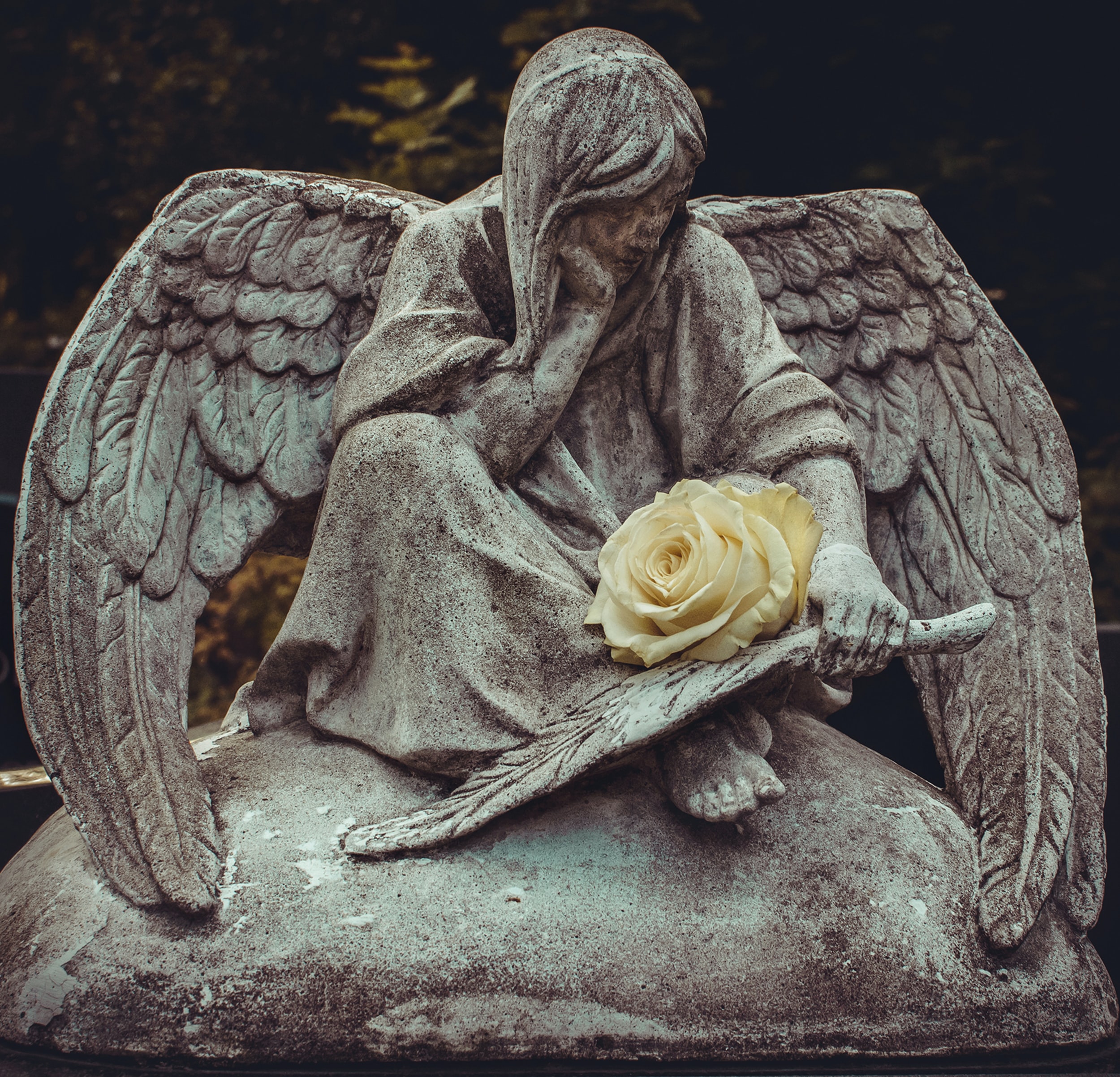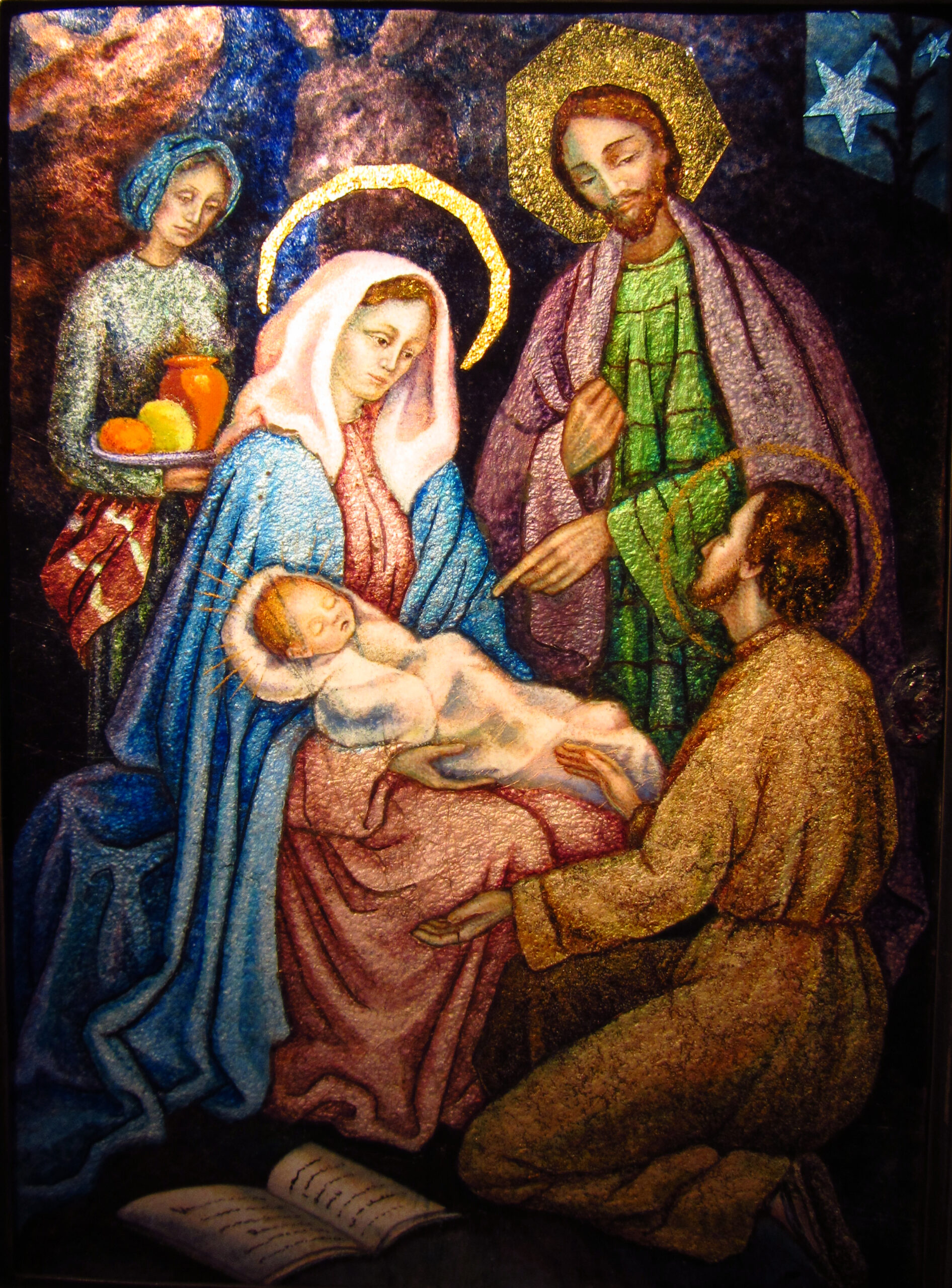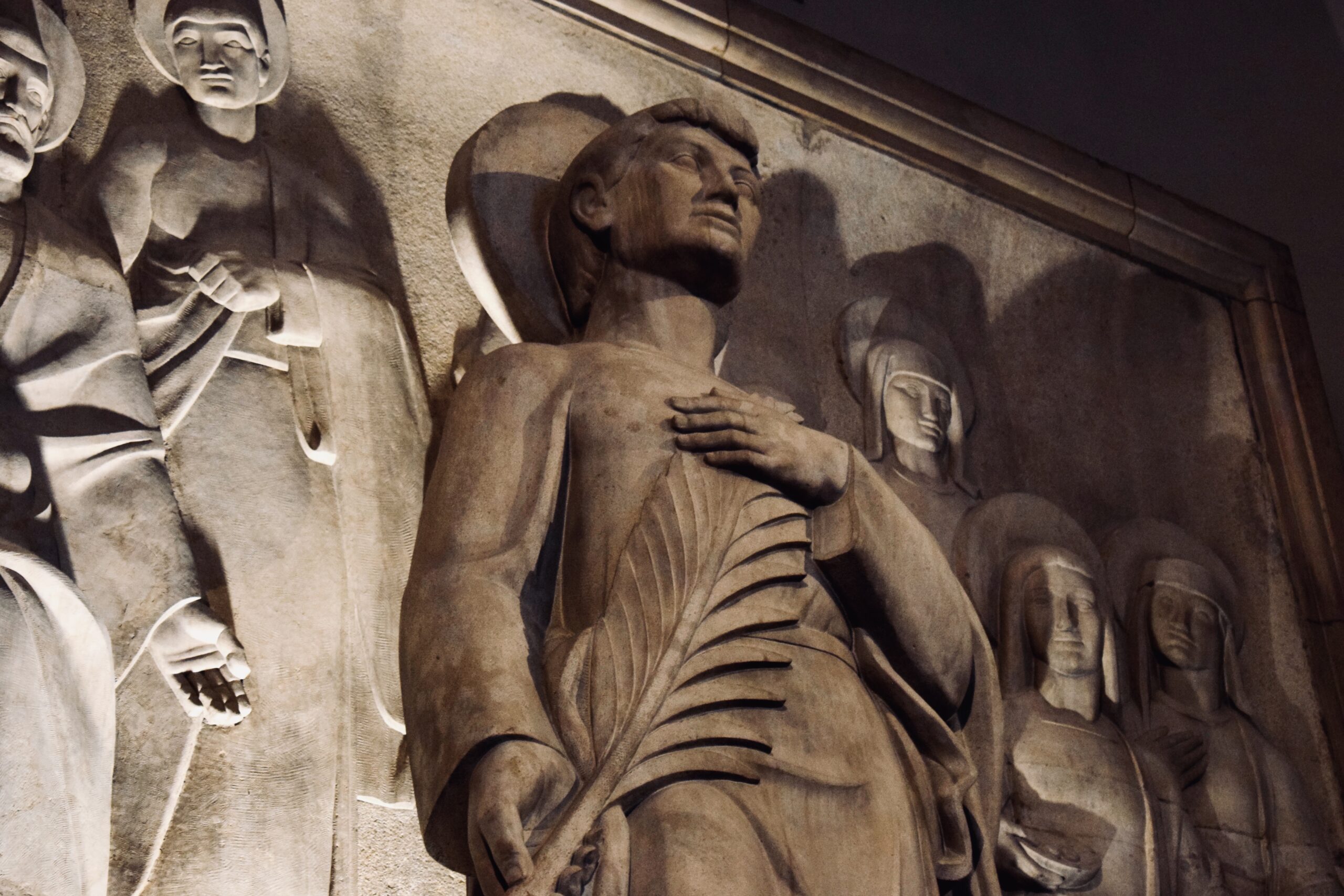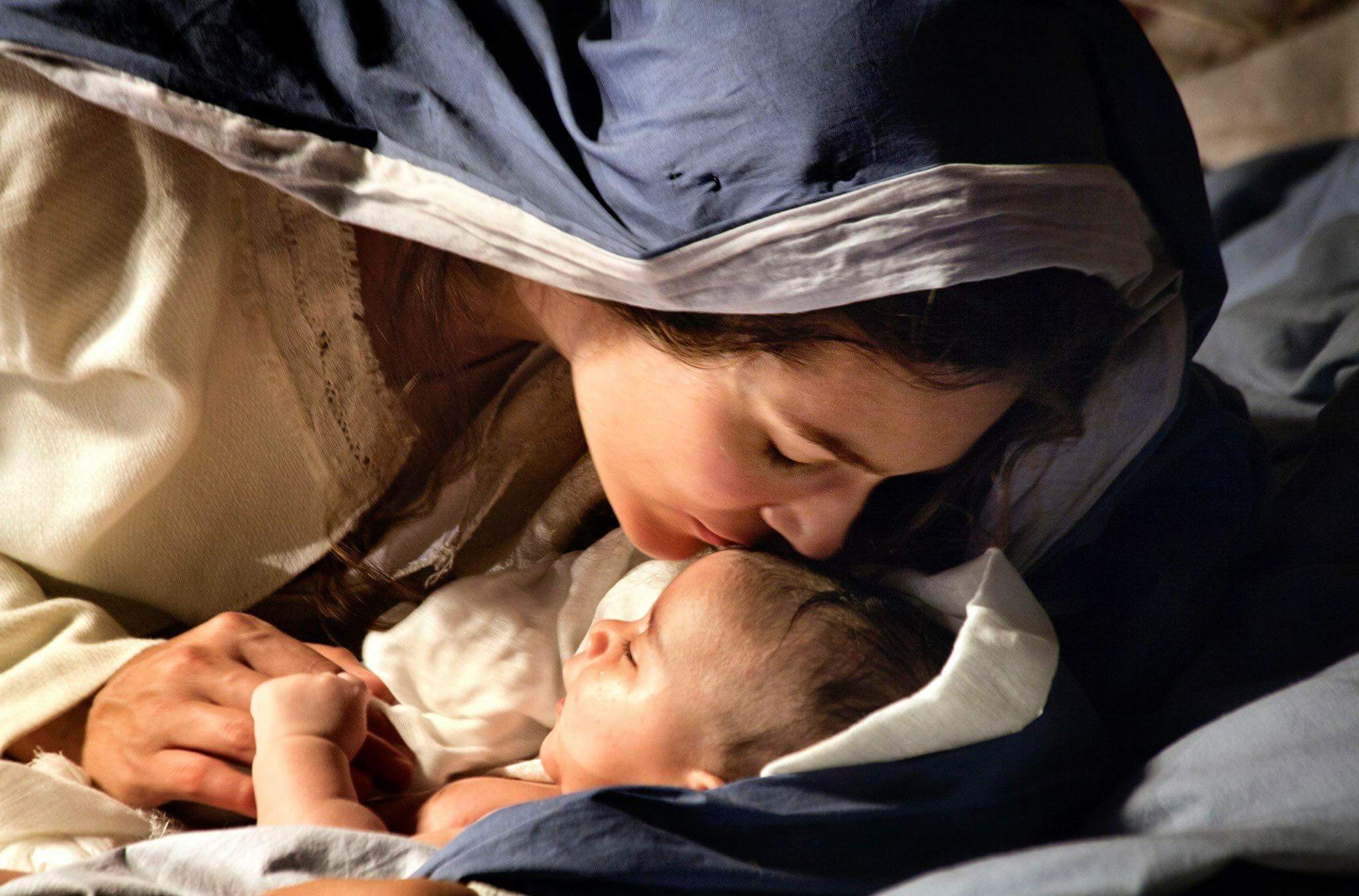Today is my good friend’s birthday. We always used to joke with him about how he was so innocent because he was born on the feast of the Holy Innocents. He is actually a priest now, but his personality still holds more than a hint of mischief, so he is far from innocent.
But really, are any of us? The First Reading states: “If we say, ‘We are without sin,’ we deceive ourselves, and the truth is not in us.” That is the whole reason Jesus came to this world, because we are not innocent.
There is certainly sadness to be felt this day, knowing that so many little children who were innocent had to die due to one man’s (Herod) anger and jealousy. It makes me think of all of the tiny lives lost through abortion every single day.
Today’s Gospel contains one of the saddest passages in Scripture: A voice was heard in Ramah, sobbing and loud lamentation; Rachel weeping for her children, and she would not be consoled, since they were no more.” Yes, it is right that we mourn such an evil injustice and it is right that we mourn our own losses as well.
But let us not remain in this sadness. Let us shift our focus to the first part of the Gospel. An angel appeared to Joseph in a dream instructing him what he must do, and without argument “Joseph rose and took the child and his mother by night and departed for Egypt.”
I am so inspired by Joseph’s holiness, his blind trust and obedience, that I named my firstborn son after him. He is mentioned so little in the Gospels and very little is known about him. Yet we know that he was so favored by God that he was chosen to be an integral part of the Holy Family. Was he scared? Yes. Did he feel unworthy? Yes. Was he sure about what to expect? No. Yet in the end, he always made the virtuous decision to obey. And his obedience was blessed by God allowing him to live under the same roof as the Son of God.
The First Reading says: “If we walk in the light as he is in the light, then we have fellowship with one another, and the Blood of his Son Jesus cleanses us from all sin.” Joseph certainly was a man who walked in the light. He is such a great example for us! And maybe, just maybe, as he was walking toward Egypt and all the children were being slaughtered behind him, he recited to himself today’s Psalm to calm his spirits: “Had not the Lord been with us-when men rose up against us, then would they have swallowed us alive, when their fury was inflamed against us… Our help is in the name of the Lord, who made heaven and earth.”
May we follow the example of St. Joseph today and keep listening, keep obeying, and keep walking along no matter what sadness or distress or loss life throws at us.
 Tami Urcia grew up in Western Michigan, a middle child in a large Catholic family. She spent early young adulthood as a missionary in Mexico, studying theology and philosophy, then worked and traveled extensively before finishing her Bachelor’s Degree in Western Kentucky. She loves tackling home improvement projects, finding fun ways to keep her four boys occupied, quiet conversation with the hubby and finding unique ways to love. She works at her parish, is a guest blogger on CatholicMom.com and BlessedIsShe.net, runs her own blog at https://togetherandalways.wordpress.com and has been doing Spanish translations on the side for almost 20 years.
Tami Urcia grew up in Western Michigan, a middle child in a large Catholic family. She spent early young adulthood as a missionary in Mexico, studying theology and philosophy, then worked and traveled extensively before finishing her Bachelor’s Degree in Western Kentucky. She loves tackling home improvement projects, finding fun ways to keep her four boys occupied, quiet conversation with the hubby and finding unique ways to love. She works at her parish, is a guest blogger on CatholicMom.com and BlessedIsShe.net, runs her own blog at https://togetherandalways.wordpress.com and has been doing Spanish translations on the side for almost 20 years.
Feature Image Credit: Julia Kadel, https://unsplash.com/photos/a8GewfTgpys


 Kathryn James Hermes, FSP, is the author of the newly released title
Kathryn James Hermes, FSP, is the author of the newly released title
 David Dashiell is the Associate Director of Liturgy for a group of parishes in Pittsburgh, Pennsylvania. When he is not spending time with his wife and infant daughter, he is writing on philosophy and theology for various online publications. You can find some of these in Crisis Magazine and the Imaginative Conservative, and you can contact him at
David Dashiell is the Associate Director of Liturgy for a group of parishes in Pittsburgh, Pennsylvania. When he is not spending time with his wife and infant daughter, he is writing on philosophy and theology for various online publications. You can find some of these in Crisis Magazine and the Imaginative Conservative, and you can contact him at 
 Tommy Shultz is the Founder/Director of Rodzinka Ministry and the Director of Faith Formation for the North Allegan Catholic Collaborative. In these roles, he is committed to bringing all those he meets into a deeper relationship with Christ. Tommy has a heart and flair for inspiring people to live their faith every day. He has worked in various youth ministry, adult ministry, and diocesan roles. He has been a featured speaker at retreats and events across the country. With a degree in Theology from Franciscan University, Tommy hopes to use his knowledge to help all people understand the beauty of The Faith. Contact Tommy at
Tommy Shultz is the Founder/Director of Rodzinka Ministry and the Director of Faith Formation for the North Allegan Catholic Collaborative. In these roles, he is committed to bringing all those he meets into a deeper relationship with Christ. Tommy has a heart and flair for inspiring people to live their faith every day. He has worked in various youth ministry, adult ministry, and diocesan roles. He has been a featured speaker at retreats and events across the country. With a degree in Theology from Franciscan University, Tommy hopes to use his knowledge to help all people understand the beauty of The Faith. Contact Tommy at